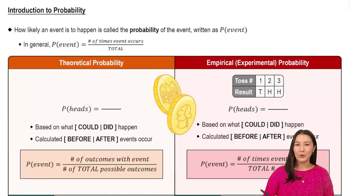In Exercises 1-4, identify the sample space of the probability experiment and determine the number of outcomes in the event. Draw a tree diagram when appropriate.
3. Experiment: Choosing a month of the year
Event: Choosing a month that begins with the letter J




